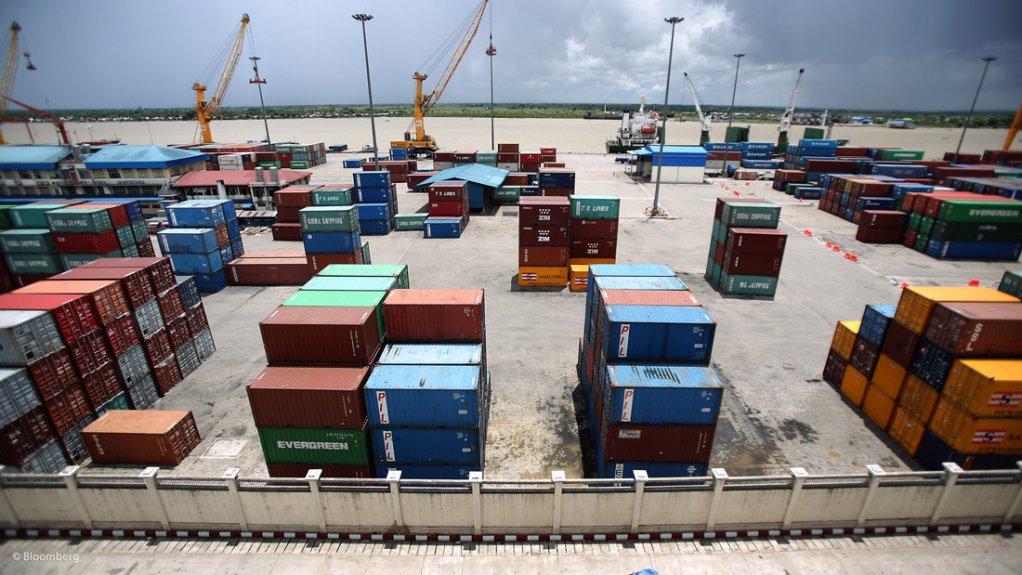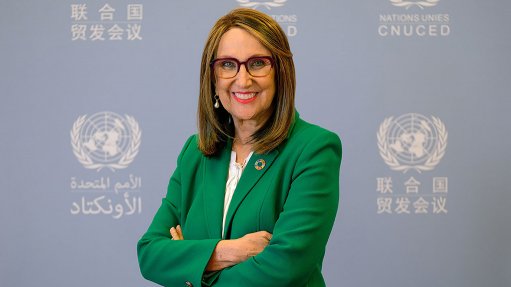Sars’ customs legislation overhaul to be rolled out in phases
The South African Revenue Service (Sars) plans to unpack a number of new Acts that will change the landscape of the customs framework, and will provide some highlights of what to expect from an Act that has left the freight transportation industry somewhat apprehensive, within the next two months.
Customs operations executive Penny Bologo on Tuesday explained that the “monster” new Acts, which formed part of the country’s customs modernisation ambitions, would be implemented in seven phases, starting with the phase one leasing and accreditation stage.
The Customs Control Act, No 31 of 2014, the Customs Duty Act, No 30 of 2014, and the Customs and Excise Amendment Act, No 32 of 2014, which had all been in the works for over six years to replace the Customs and Excise Act of 1964 and provide for new, modernised customs legislation, was promulgated a year ago, but had yet to be implemented.
Sars had initially planned to start executing the amended Acts in July; however, owing to a number of factors, including an ongoing stakeholder consultative process, the agency now planned to kick off the implementation late in 2015 or early 2016.
Speaking at a Customs Trade and Facilitation discussion hosted by the Johannesburg Chamber of Commerce and Industry (JCCI) and the Southern Africa Shippers, Transport and Logistics Council, in Johannesburg, she noted that Sars Commissioner Tom Moyane was expected to update the industry on the progress of the Acts during October.
“There are concerns . . . fears of what the [new] Acts will bring,” Bologo pointed out, adding that a new mindset was needed to roll out the frameworks.
“Sars needs support. We can have the best legislation but without proper implementation, it would fail,” she commented, calling on industry to collaborate with Sars.
This was in line with the key message of public–private sector collaboration emerging from the business briefing, with stakeholders agreeing that the new Acts would not be implemented in isolation from the private sector.
Extensive public–private sector collaboration would be required along with the need for the transport and logistics industry to become more proactive and involved in the legislative processes that would impact it.
“Since 2010, we have been thinking and talking about the customs modernisation [programme]. It is [now] going to happen [despite the fears and concerns of what to expect],” independent consultant Keith Horn said.
Meanwhile, Bologo aimed to put to bed the fears that the City Deep Container Terminal, in Gauteng, would lose its status as an international inland port when the new legislation was implemented; however, it would absolve the terminal of processing high-risk cargo, which accounted for 10% to 20% of its customs clearances.
“The only thing that will change is that the high-risk inspections would move to the Durban port . . . to eliminate [any form of] high-risk cargo crossing the country,” she explained.
Former JCCI president Patrick Corbin objected to certain aspects of the Customs Control Bill on the basis that the Act required that all imported goods be cleared and released at the first port of entry, which, he believed, would in effect withdraw City Deep’s port of entry responsibilities.
“The facility will be no different than a standard container terminal,” Corbin commented, claiming that all the current clearance and inspection responsibilities of the Johannesburg terminal would be redirected to the Durban seaport.
Of the four-million containers entering South Africa each year, the Durban port processed, inspected and cleared around 2.7-million.
“We need City Deep [to remain as a dry sea port] – it takes the weight off the shoulders of the Durban sea port,” Bologo assured a less-than-convinced Corbin.
“Sars needs to rethink its position,” he said, stating that the Durban port would end up heavily congested with uncleared containers, causing delays and potential penalties, hamper berthing movements and upset shipping lines’ vessel schedules.
Corbin stated that the Bill had failed to recognise the critical role City Deep had played as an inland port and the impact it would have on the cost of doing business, the country’s road-to-rail ambitions, the coastal ports and ease of movement of goods nationally and to neighbouring countries.
“By moving the customs release point back to the coast, a vessel manifest will terminate at the coastal port. There will not be the option of a multimodal Bill of Lading and seamless inland movements, as all boxes or the unpacked contents will remain at the coast until cleared and released by the line before being reconsigned,” he concluded.
Comments
Press Office
Announcements
What's On
Subscribe to improve your user experience...
Option 1 (equivalent of R125 a month):
Receive a weekly copy of Creamer Media's Engineering News & Mining Weekly magazine
(print copy for those in South Africa and e-magazine for those outside of South Africa)
Receive daily email newsletters
Access to full search results
Access archive of magazine back copies
Access to Projects in Progress
Access to ONE Research Report of your choice in PDF format
Option 2 (equivalent of R375 a month):
All benefits from Option 1
PLUS
Access to Creamer Media's Research Channel Africa for ALL Research Reports, in PDF format, on various industrial and mining sectors
including Electricity; Water; Energy Transition; Hydrogen; Roads, Rail and Ports; Coal; Gold; Platinum; Battery Metals; etc.
Already a subscriber?
Forgotten your password?
Receive weekly copy of Creamer Media's Engineering News & Mining Weekly magazine (print copy for those in South Africa and e-magazine for those outside of South Africa)
➕
Recieve daily email newsletters
➕
Access to full search results
➕
Access archive of magazine back copies
➕
Access to Projects in Progress
➕
Access to ONE Research Report of your choice in PDF format
RESEARCH CHANNEL AFRICA
R4500 (equivalent of R375 a month)
SUBSCRIBEAll benefits from Option 1
➕
Access to Creamer Media's Research Channel Africa for ALL Research Reports on various industrial and mining sectors, in PDF format, including on:
Electricity
➕
Water
➕
Energy Transition
➕
Hydrogen
➕
Roads, Rail and Ports
➕
Coal
➕
Gold
➕
Platinum
➕
Battery Metals
➕
etc.
Receive all benefits from Option 1 or Option 2 delivered to numerous people at your company
➕
Multiple User names and Passwords for simultaneous log-ins
➕
Intranet integration access to all in your organisation




















